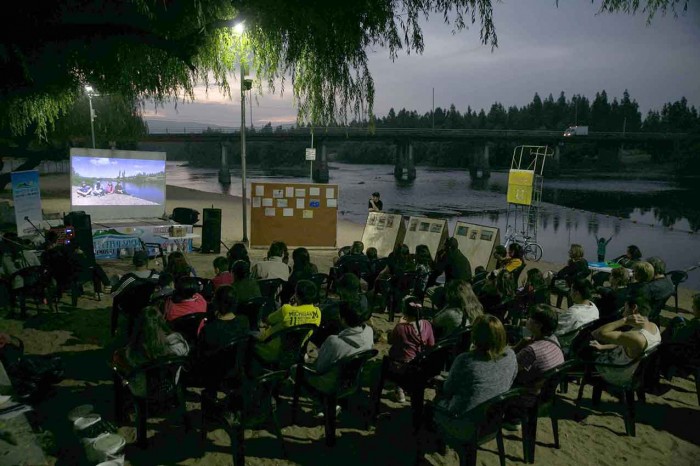Permeable Exhibitions: Models against the tide of Western museums
Online Course on Contemporary Curating
Lecturer: Paz Guevara
Course dates: 28 May + 4 June 2022, 2–6pm (CEST)
Enroll until 21 May 2022
Which exhibition models set questions in motion that unsettle their own foundations and historical conditions rather than reaffirming themselves? What are the strategies that those exhibitions perform to expose the crisis of the ‘exhibited’ objects, subjects, relations, and frameworks? What material, aesthetic, political, social, and epistemic frontiers do they confront and traverse? How do exhibitions have the capacity to shape transitional models while traversing the paths of their own undoing?
At times of drastic transformation of the public space and the crisis of the Western museum model, the course intends to stimulate the conceptualization and discussion around exhibitions that reconstitute themselves while transiting through present fractures—becoming permeable. Against or released from the inherited framework of Western museums founded under the conditions and logic of colonial and neo-colonial modernity, there are illuminating cases of exhibition propositions that move across structures, categories, narratives, and values. They activate passages through fissures, while disrupting and transforming principles, like those of artistic autonomy, authorship, ownership, historicity, and objectification. Often, they reveal and disarticulate stagnant biases and privileges enmeshed in institutional power structures.
By disarticulating the limits between inside and outside, objects and subjects, figure and background conditions, permeable exhibitions lead to transfers of power and aim to produce citizens’ engagements. In the course, we will co-reflect on cases across localities. We will depart from the Water Community Museum, by Marcela Moraga and the Colectivo Social Salvemos el Río Renaico (2016-present). Founded collectively with and for the community of Renaico in the south of Chile, the Water Community Museum confronts the capitalist extractivism in the region by collecting and preserving a cultural element that has been driven to extinction by the logging industry: the water. We will also follow and analyse emerging models in the making, such as the Edo Museum in Benin City, Nigeria, which plans to challenge the Western model through the “undoing of the objectification that has happened in the West,” performing a “reteaching tool—a place for recalling lost collective memories,” and being located within “a public garden” will offer “a welcoming green environment suitable for gatherings, ceremonies and events” (David Adjaye). The Edo Museum is expecting to host restituted collections from European museums, such as the so-called Benin Bronzes that were supposed to be exhibited at the Humboldt Forum in Berlin this year and of which the German government has recently announced it was negotiating the restitution.
Paz Guevara is a curator, researcher and author. Since 2015, she has worked at Haus der Kulturen der Welt – HKW in Berlin, Germany, where she collaborates on the long-term project Kanon-Fragen that questions dominant cultural narratives. In this context, she has curated Afro-Sonic Mapping. Tracing Aural Histories via Sonic Transmigrations by artist and musician Satch Hoyt (2019) and co-curated Parapolitics: Cultural Freedom and the Cold War (2017-2018, together with Anselm Franke, Nida Ghouse and Antonia Majaca). She has also contributed to the documentary exhibition Past Disquiet at HKW with research on South American artists and museums involved in the solidarity movement. In 2011 and 2013, she co-curated the Latin American Pavilion at the Venice Biennale. Guevara has conducted several conversations with cultural practitioners; most recently, she has published conversations with Elicura Chihuailaf (NIRIN NGAAY, Biennale of Sydney, 2020) and Marcela Moraga (Villa Romana, Florence, 2020). She lectures on Exhibitions Histories at the MA on Raumstrategien at the Weißensee Kunsthochschule in Berlin and at the IED Instituto Europeo di Design in Venice.
Image credit: Water Community Museum, a project by Marcela Moraga and the Colectivo Social Salvemos el Río Renaico. Renaico, southern Chile (2016-present)
–––––––––––––––
The Online Courses on Contemporary Curating are offered by the Postgraduate Programme in Curating, Continuing Education, Zurich University of the Arts.
In collaborations with Oncurating.org.
Please find detailed information for all courses here:
www.curating.org/new-online-courses

